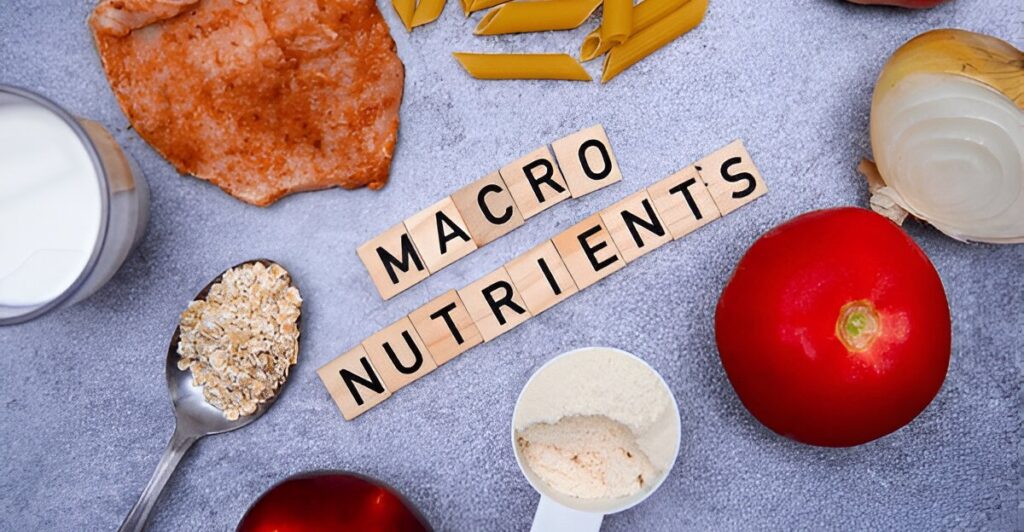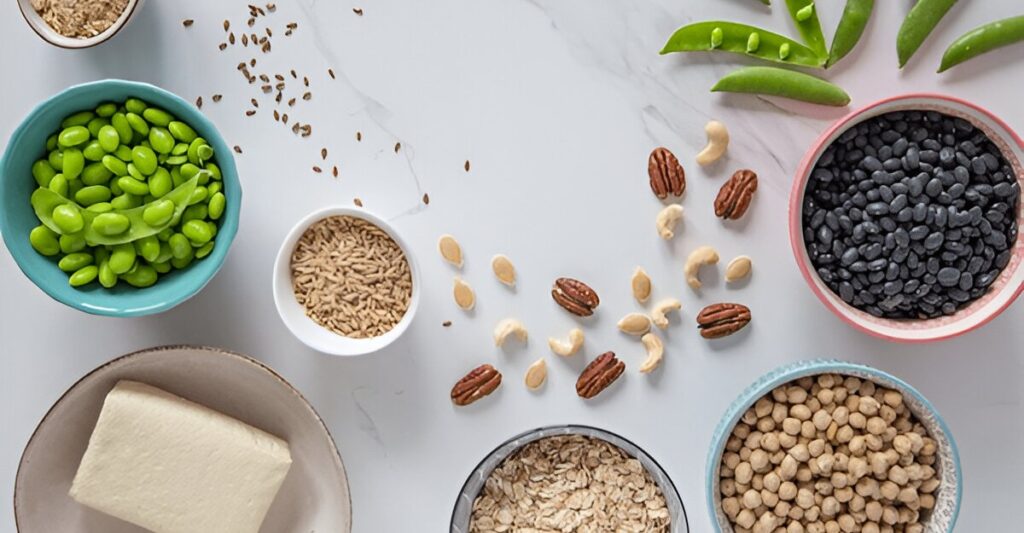Polycystic Ovary Syndrome (PCOS) affects millions of women, causing symptoms like irregular periods, weight gain, acne, and infertility. While there’s no cure, diet plays a powerful role in managing symptoms and improving quality of life. Nutrition strategies for managing PCOS focus on balancing hormones, improving insulin sensitivity, and reducing inflammation. This article offers science-backed dietary tips to help you take control of PCOS and feel your best.
Understanding PCOS and the Role of Nutrition
PCOS is a hormonal disorder characterized by elevated androgens (male hormones), insulin resistance, and ovarian cysts. These imbalances can lead to weight gain, fatigue, and fertility challenges. Insulin resistance, present in up to 70% of women with PCOS, drives many symptoms by increasing androgen production and disrupting ovulation.
Nutrition strategies for managing PCOS target insulin sensitivity, inflammation, and hormonal balance. A well-planned diet can:
- Stabilize blood sugar to reduce insulin spikes.
- Lower inflammation to ease symptoms like acne and fatigue.
- Support weight management, which can improve ovulation and fertility.
A 2021 study in The Journal of Clinical Endocrinology & Metabolism found that dietary interventions improved insulin sensitivity and reduced androgen levels in women with PCOS. Let’s explore how to build an effective PCOS-friendly diet.
Key Nutrition Strategies for Managing PCOS
These evidence-based strategies can help you manage PCOS symptoms through diet:
1. Prioritize Low-Glycemic Index (GI) Carbohydrates
Low-GI carbs release sugar slowly, preventing insulin spikes that worsen PCOS symptoms.
- Best Choices: Whole grains (quinoa, brown rice), legumes, sweet potatoes, and non-starchy vegetables (broccoli, spinach).
- Avoid: High-GI foods like white bread, sugary drinks, and processed snacks.
- Tip: Pair carbs with protein or fat to further slow digestion, per a 2019 study in Nutrients.
- Example: Swap white rice for quinoa in a veggie stir-fry.
2. Focus on Anti-Inflammatory Foods
Chronic inflammation exacerbates PCOS symptoms like acne and weight gain. Anti-inflammatory foods can help.
- Best Choices: Fatty fish (salmon, mackerel), berries, leafy greens, nuts, and olive oil.
- Avoid: Processed meats, trans fats, and sugary foods.
- Tip: Include turmeric or ginger for extra anti-inflammatory benefits, as shown in a 2020 study in Phytotherapy Research.
- Example: Add salmon and spinach to your lunch bowl for an anti-inflammatory boost.
3. Increase Protein Intake
Protein supports satiety, muscle maintenance, and blood sugar stability, all crucial for PCOS management.
- Best Choices: Lean meats, eggs, tofu, Greek yogurt, and legumes.
- How Much: Aim for 20-30 grams of protein per meal, per a 2022 study in Obesity.
- Tip: Start your day with protein to curb cravings and stabilize glucose.
- Example: A breakfast of Greek yogurt with chia seeds and berries.
4. Include Healthy Fats
Healthy fats improve insulin sensitivity and support hormone production, key for PCOS.
- Best Choices: Avocados, nuts, seeds, olive oil, and fatty fish.
- Avoid: Trans fats in fried foods and packaged snacks.
- Tip: Omega-3 fats from fish or flaxseeds reduce inflammation, per a 2018 study in Circulation.
- Example: Drizzle olive oil over a salad with walnuts and salmon.
5. Manage Portion Sizes for Weight Control
Even modest weight loss (5-10%) can improve PCOS symptoms like irregular periods and infertility, per a 2020 study in Human Reproduction.
- Strategy: Use smaller plates, prioritize fiber-rich foods, and eat slowly to enhance satiety.
- Tip: Focus on nutrient-dense foods to feel full without excess calories.
- Example: A plate with half vegetables, a quarter protein, and a quarter low-GI carbs.
6. Support Gut Health
A healthy gut microbiome may improve insulin sensitivity and reduce inflammation in PCOS.
- Best Choices: Probiotic foods (yogurt, kefir) and prebiotic fibers (asparagus, garlic).
- Tip: Fermented foods like kimchi can enhance gut diversity, per a 2021 study in Gut Microbes.
- Example: Add a side of sauerkraut to your dinner plate.
Foods to Limit or Avoid with PCOS
Certain foods can worsen PCOS symptoms by spiking insulin or increasing inflammation:
- Sugary Foods and Drinks: Soda, candy, and desserts drive insulin resistance.
- Refined Carbs: White bread, pastries, and sugary cereals cause rapid glucose spikes.
- Processed Meats: Bacon and sausages promote inflammation.
- Excess Dairy: Some women with PCOS find dairy worsens acne or androgen levels, per a 2019 study in Nutrients. Consider a dairy-free trial if symptoms persist.
Sample PCOS-Friendly Meal Plan
Here’s a one-day meal plan incorporating nutrition strategies for managing PCOS:
- Breakfast: Greek yogurt with flaxseeds, blueberries, and a handful of almonds.
- Snack: Sliced cucumber with hummus and cherry tomatoes.
- Lunch: Grilled chicken salad with spinach, avocado, quinoa, and olive oil dressing.
- Snack: Hard-boiled egg and a small apple.
- Dinner: Baked salmon with roasted Brussels sprouts and sweet potato wedges.
Tip: Stay hydrated with water or herbal teas to support metabolism and digestion.
Lifestyle Tips to Complement Nutrition
Diet is crucial, but these habits enhance the effectiveness of nutrition strategies for managing PCOS:
- Exercise Regularly: Combine strength training and cardio to improve insulin sensitivity, per a 2022 study in Diabetes Care. Aim for 150 minutes weekly.
- Manage Stress: Chronic stress raises cortisol, worsening insulin resistance. Try yoga or meditation.
- Prioritize Sleep: Poor sleep disrupts hormones. Aim for 7-9 hours nightly, per a 2019 study in Sleep Medicine.
- Work with Experts: Consult a dietitian or endocrinologist to personalize your plan, especially for fertility or severe symptoms.
Common Myths About PCOS and Nutrition
Let’s debunk some misconceptions:
- Myth 1: You Must Go Keto for PCOS
While low-carb diets like keto can help, they’re not the only option. Low-GI, balanced diets work well for many, per a 2021 study in Nutrients. - Myth 2: All Carbs Are Bad
Complex, fiber-rich carbs like oats or lentils are beneficial when portion-controlled. - Myth 3: Diet Alone Can Cure PCOS
Diet manages symptoms but doesn’t cure PCOS. It’s most effective with lifestyle changes and medical guidance.
The Science Behind PCOS Nutrition
Research supports these nutrition strategies for managing PCOS. A 2023 study in The American Journal of Clinical Nutrition found that low-GI diets reduced insulin resistance and androgen levels in women with PCOS. Another study in Fertility and Sterility (2020) showed that anti-inflammatory diets improved ovulation rates. By aligning your diet with these findings, you can address PCOS symptoms effectively.
Conclusion
Nutrition strategies for managing PCOS empower you to take charge of your health by stabilizing blood sugar, reducing inflammation, and balancing hormones. By prioritizing low-GI carbs, anti-inflammatory foods, protein, and healthy fats while limiting processed foods, you can alleviate symptoms and boost well-being. Combine these dietary changes with exercise, stress management, and sleep for optimal results.
Start small—swap one high-GI snack for a nutrient-dense option or add a serving of leafy greens to your plate. With consistency and a personalized approach, you’ll feel more in control of PCOS and its challenges.
Call to Action: Ready to try these PCOS-friendly nutrition tips? Share your favorite recipe or ask a question in the comments below!


